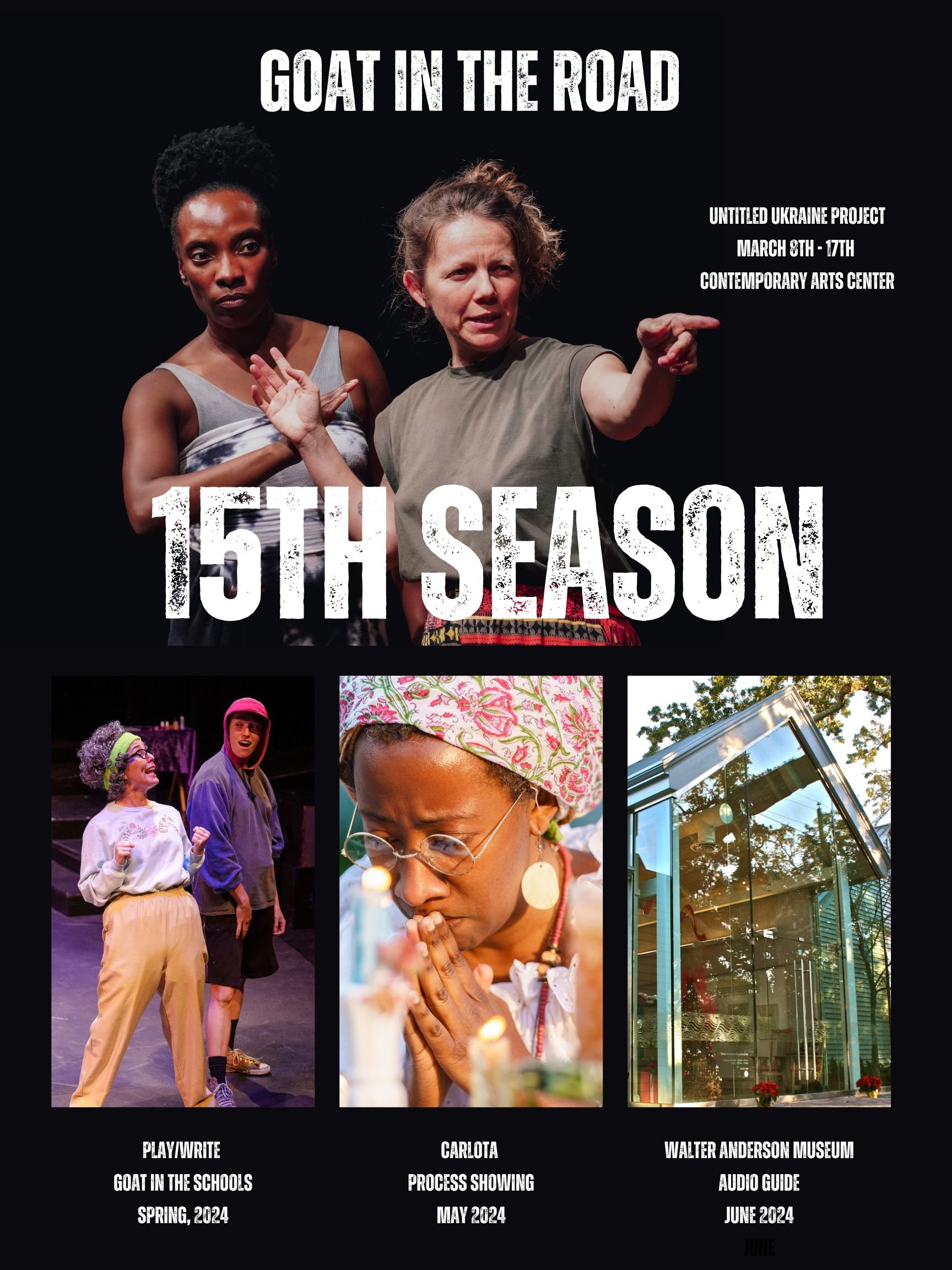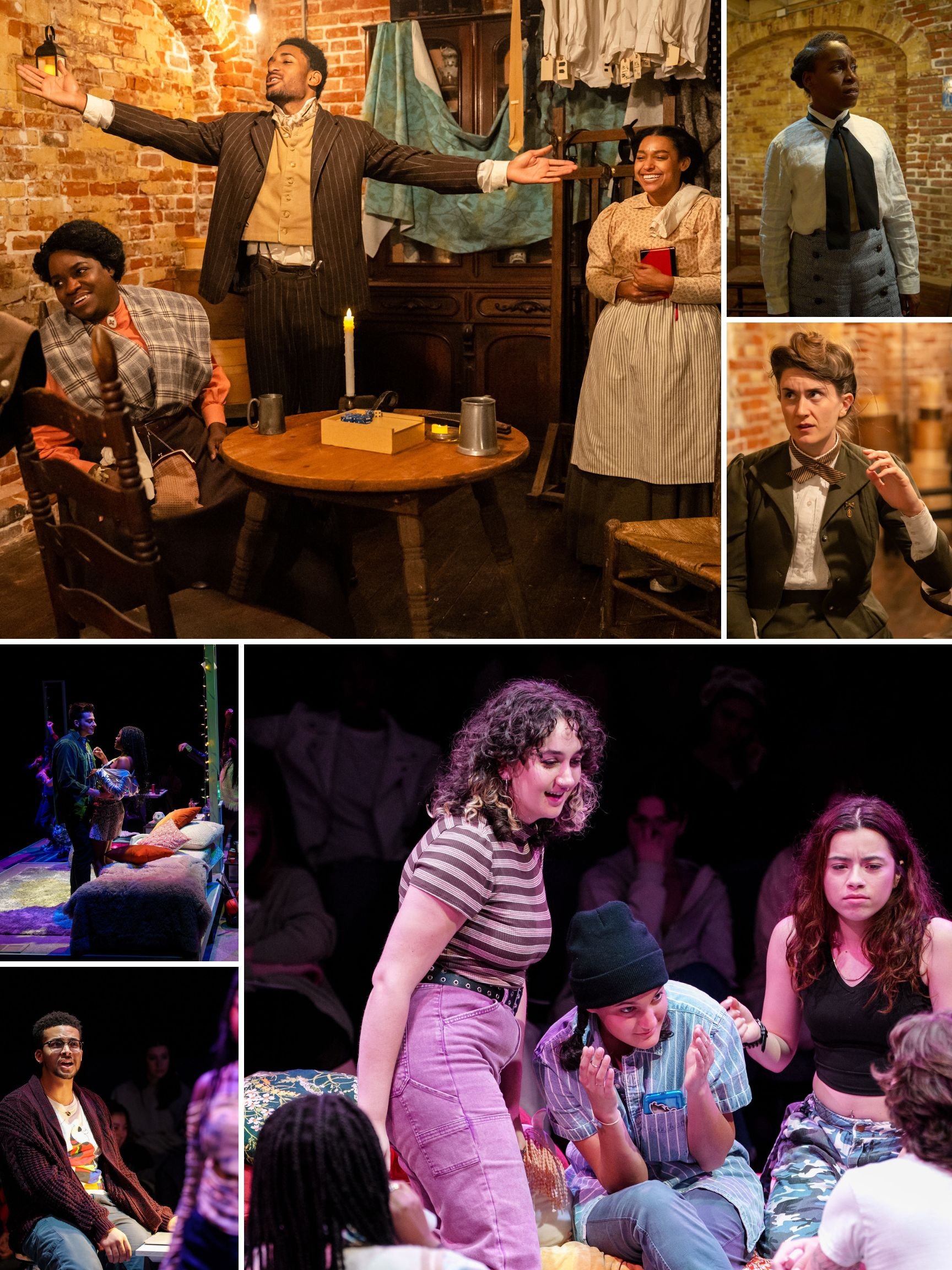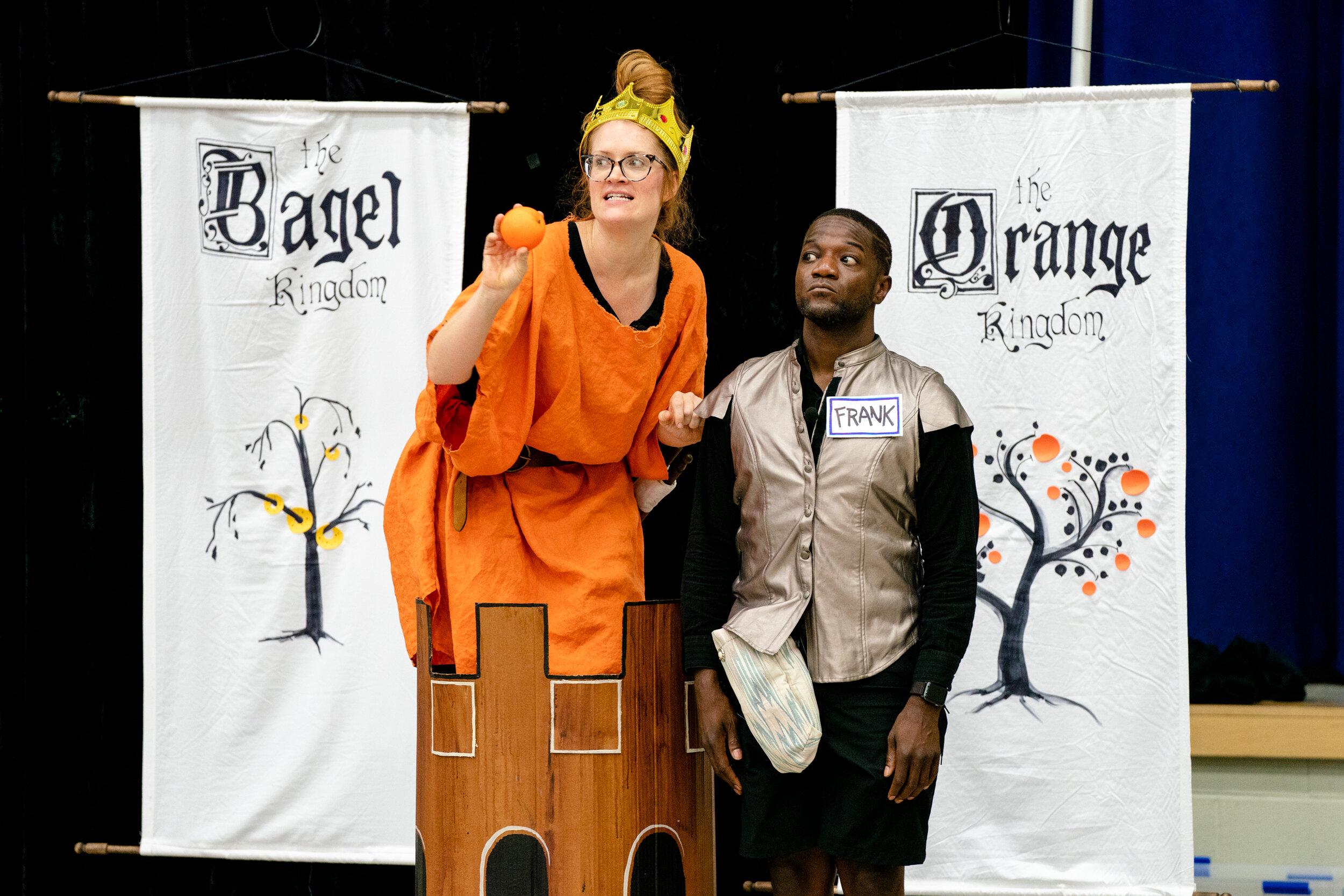Letter from Ukrainian Tetiana Kytsenko
Shannon Flaherty
March 15, 2024
Here is a letter provided to Goat in the Road by our Ukrainian dramaturgical consultant, Tetiana Kytsenko, as we worked on the play Top 5 Survival Moves:
My husband’s grandfather, who lived in the Bryansk region, recalled how in the 1930s people literally crawled there from Ukraine - half-dead, weak from hunger. Local women left some food for them in the bushes on the side of the road: the Russian authorities forbade helping those starved to death.
My great-aunt Antonina, while working on a collective farm, hid a handful of grain to feed her hungry younger sister at home. Because of this, she served several years under the “three ears of corn Stalin’s law” and she was never allowed to return to her hometown, where, with a criminal record, she was doomed to unemployment.
My great-uncle Minai was mobilized in WW2, sent, as we would now say, to a “meat assault” and died almost in the first battle. My great-grandmother was sent to camps because she shouted to the head of the collective farm: You made an exemption for your son, but they killed my Minochka!
My paternal grandfather was dispossessed by communists, his house, mill, and land were taken away. He and his wife fled to Adygea, where my father was born. After returning to Ukraine, they lived in poverty; my father was sent to the Suvorov Military School. There he had to switch to Russian and never again communicated in his native language in everyday life.
Perhaps you will say, all this is in the past, we must live in the present. But now Russia is using the same methods against Ukraine. In an attempt to provoke famine, the Russians are bombing our food warehouses, and last summer, Brovary, where I live, was shrouded in the stench of tens of thousands of tons of rotting chicken and fish. Residents of the occupied territories are first forced to take Russian passports, and then mobilized and sent into “meat storms:” there are now almost no men left in the Donbass and Lugansk region. Everywhere where the Russians have established their power, for the slightest disloyalty to it they are put in the pit, and then sent to camps or killed. (How many dungeons we will still find in liberated villages!) They can be evicted from their own home in the occupied territories just like that - so that there is somewhere to accommodate the military. Who then, when leaving, take from Ukrainian houses everything they can, and what they cannot spoil and break. And finally, about the language: if earlier Ukrainian was banned and made the language of the “countryside,” now the occupiers are burning books in Ukrainian. And in the village of Aleksandrovka, Kherson region, where I was at the theater laboratory in 2022, a tank stood in front of the library and shot it until it was completely destroyed.
Those who convince Ukrainians to give up territory to the enemy must understand: this is not about land, but first of all about people. 95% of Ukrainians do not want Russia on their territory.
Our democracy is said to be young, but freedom is in our blood, and it is for this that Ukrainian soldiers are now fighting. This is what our people strive for.
- Tetiana Kytsenko






















